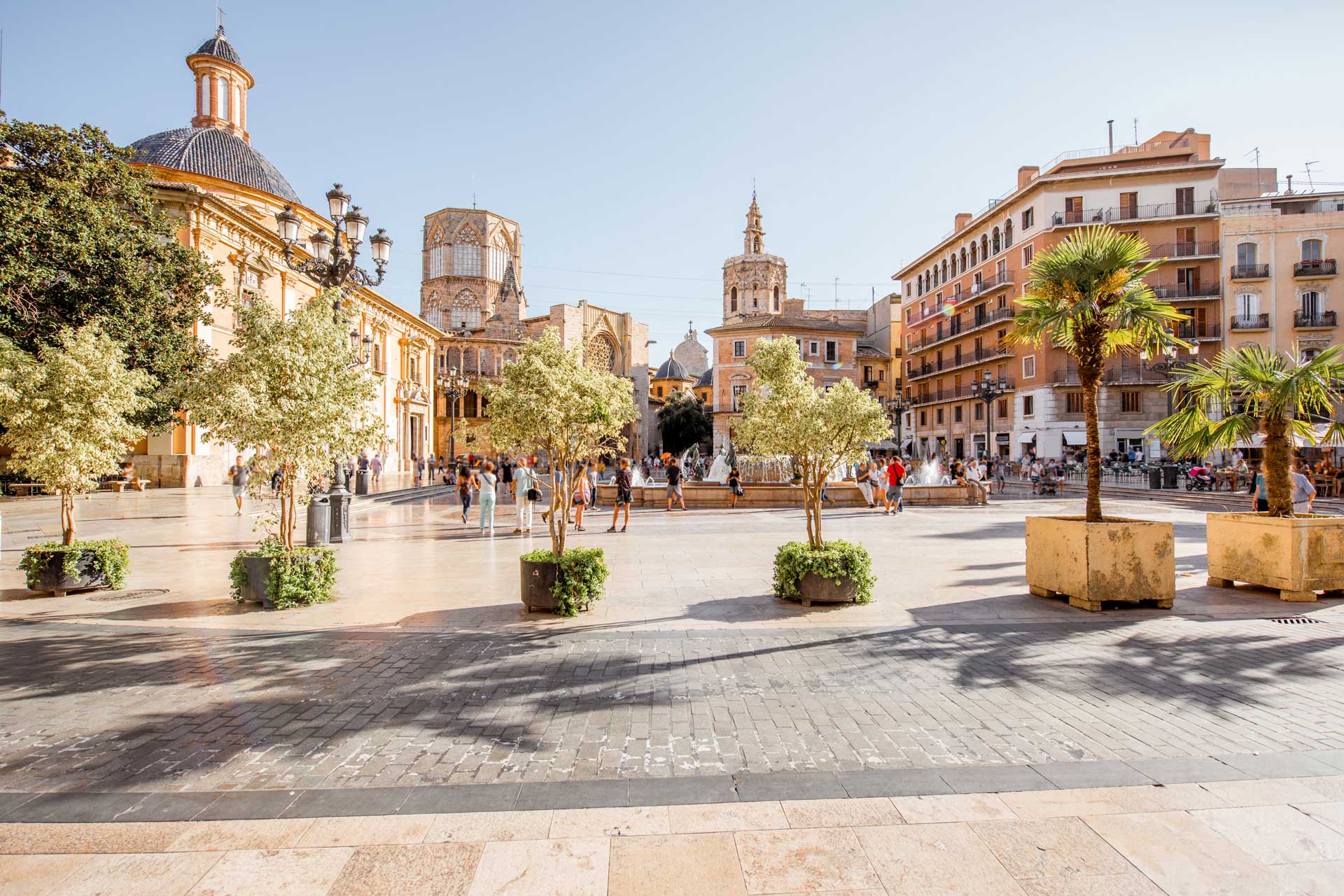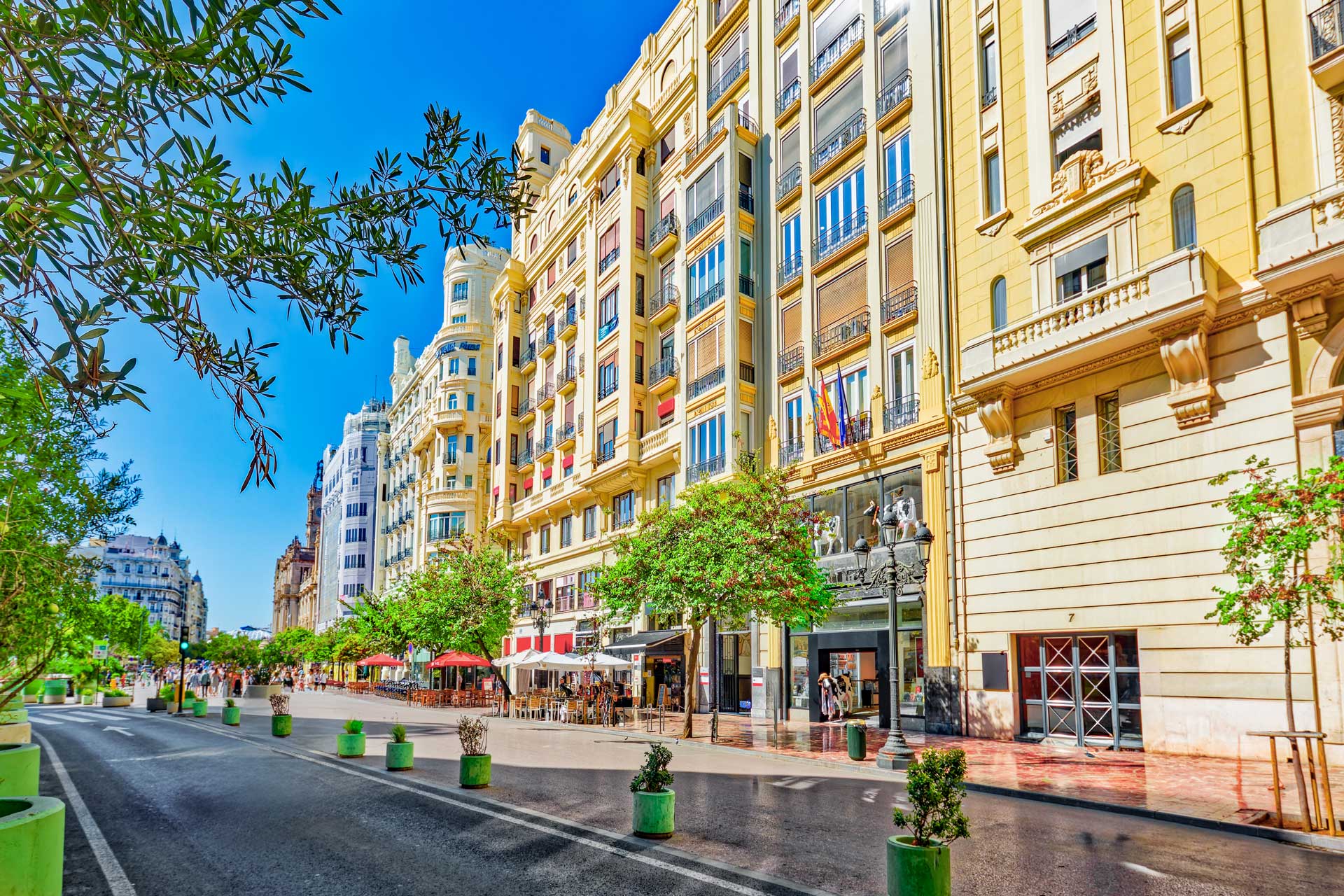An honest guide for families, retirees, and professionals planning a new life in Spain
For many EU citizens, Valencia is more than a sunny postcard—it’s a real, tangible opportunity to build a better, slower, and more balanced life. The city’s appeal is no secret: a Mediterranean climate without extremes, a walkable lifestyle, vibrant culture, and housing that remains accessible by European standards. And yet, despite the open borders and shared currency, Moving to Valencia Spain as an EU citizen still comes with its share of surprises—especially when it comes to navigating housing, paperwork, healthcare, or schools.
At Livin’Valencia, we’ve guided hundreds of European citizens through their move—whether they were a Belgian family seeking international schooling, a German retiree in search of sunshine and serenity, or a Dutch professional planning to work remotely. What we’ve learned is simple: moving to Valencia is never just about real estate. It’s about understanding the logic behind how things work—and where the pitfalls are hidden.
This article offers you the honest, practical insights we share with our own clients, tailored specifically for Europeans who don’t need a visa—but still need a strategy.
Why So Many Europeans Are Making the Move
There’s a certain balance in Valencia that’s increasingly rare in Europe: a capital city (of the Valencian Community) with culture and connectivity that doesn’t feel overwhelming, a climate that supports outdoor living year-round, and a rhythm of life that genuinely respects work-life balance. For EU citizens frustrated by the pace or cost of life in other capitals, Valencia offers an attractive counter-model.
Retirees are often drawn to the idea of a Mediterranean lifestyle that doesn’t require them to abandon their European identity. Families appreciate the mix of green spaces, international schools, and access to the sea. Professionals and remote workers, especially those coming from northern Europe, often describe their move as an investment in mental health.
But while many things are easier for EU movers compared to non-Europeans—no visa applications, for example—what makes a relocation truly successful is not just entry. It’s integration.
Residency and Bureaucracy: Yes, Even for EU Citizens
It’s a common assumption that, as an EU citizen, you can simply land in Spain and settle down with minimal paperwork. In practice, it’s more nuanced. While it’s true that you can enter the country freely and stay without a visa, a proper long-term relocation requires several important administrative steps.
To live legally in Spain, you need to register with the local authorities. This starts with the empadronamiento, or municipal registration, which proves your address and is essential for everything from school enrollment to healthcare access. After that comes the Certificado de Registro de Ciudadano de la Unión, which is essentially your EU residency certificate in Spain. This isn’t automatic—it requires proof of financial means, health coverage, and your housing situation.
At Livin’Valencia, we help clients prepare these documents in advance, anticipate appointment timelines, and avoid the classic errors—like providing income proof that doesn’t meet the right format, or arriving without the correct translated paperwork. These steps aren’t insurmountable, but they’re rarely as “automatic” as people think. Having someone local to interpret the logic behind each process can save weeks—or months—of delay.
Renting or Buying a Home: What the Market Really Looks Like
Housing in Valencia has changed significantly over the past few years. While the city is still more affordable than Madrid, Barcelona, or most northern European capitals, demand has grown steadily—and so have prices.
For those looking to rent, the process may feel familiar at first glance. But it quickly becomes clear that landlords often ask for documents that are specific to Spain—such as a NIE number, proof of income in Spain, or even private insurance coverage. Some ask for several months’ rent upfront or a bank guarantee. EU movers who work remotely or are self-employed abroad can face hurdles proving their solvency in a system that doesn’t recognize foreign payslips as easily.
For buyers, the options are broader, but competition is also sharper. In well-established neighborhoods like Ruzafa, Pla del Real, or El Carmen, prices start from €3,250 per square meter, and quality homes don’t stay long on the market. In the villages that surround Valencia, where many families and retirees settle, townhouses and small houses with outdoor space or pools can still be found from €350,000 upward—but this is no longer considered “cheap” by Spanish standards. In consolidated suburbs close to the city center and well connected with international schools, prices are even higher. For a family house, prices typically start at €600,000, reflecting the growing demand in these sought-after areas.
Livin’Valencia accompanies EU buyers with a focus on independence: we don’t sell properties, we represent your interests. From organizing viewings and comparing properties to negotiating price and reviewing contracts, our job is to simplify your decisions and protect your investment. The same applies for renters—we help you understand what you’re signing, ensure your rights are protected, and anticipate future costs or legal gray zones.
Where to Live: Valencia City or Its Surroundings?
Location is not just about budget—it’s about rhythm, schools, transport, and community. EU citizens often arrive with a romantic idea of life in a historic apartment in the city center, only to realize that daily life or remote work might require something different.
Many families end up settling in suburbs like La Cañada, L’Eliana, Rocafort or Godella. These areas are green, residential, and well connected to the city by metro or car. They’re also home to some of the best international schools in the region. Retirees often choose quieter beachside areas like Patacona or more central neighborhoods like Montolivet or Pla del Real—places where life is calm, but everything is within reach.
Professionals, solo movers, or families seeking the Valencian way of life usually prefer urban districts such as Ensanche, Benimaclet, or Ruzafa—each with its own vibe, from student-friendly to artsy-chic.
One of the most useful steps our clients take is joining us for a neighborhood tour before choosing where to live. Seeing the city with someone who knows both its real estate and its daily pulse helps you avoid picking a place that looks good online, but feels wrong once you live in it.
Everyday Life: Healthcare, Schools, and Getting Set Up
Spain offers excellent public healthcare, and EU citizens can usually access it through the S1 form (for retirees) or by contributing to the system if they’re employed or self-employed in Spain. However, there are differences depending on your status. If you’re not working in Spain, you’ll need private health insurance to complete your residency registration.
Education is another key concern for relocating families. Spanish public schools are free, but their quality varies, and catchment areas apply strictly. Some concertado schools (semi-private) offer bilingual programs, but places are limited. International schools—with British, French, German or IB curricula—are popular among expat families, especially those who might relocate again in the future. They also come at a cost and have their own admission calendars, interviews, and requirements.
We help families navigate these questions early, identifying suitable schools, coordinating visits, and clarifying application steps. This can be the difference between a smooth September start and months of uncertainty.
What many people overlook is how many small things require coordination: opening a Spanish bank account (essential for rent and utilities), getting a local SIM card, setting up water and electricity contracts, or even translating and legalizing documents for official use. These are rarely explained online, and each process has its own timeline and quirks.
How Livin’Valencia Makes It Easier for EU Citizens
Our role goes far beyond real estate. We see relocation as a sequence of interconnected steps—and we’ve built our services around that. From pre-arrival consultations where we help you sketch a realistic plan, to the moment you receive your keys and beyond, we remain at your side.
Before you arrive, we help you define your criteria, understand the legal framework, and book essential appointments. During your stay, we coordinate viewings, assist in negotiations, and manage everything from notary signings to lease contract reviews. And once you’ve moved in, we continue: registering you at the town hall, setting up your utilities, advising you on health registration, and staying available for any questions that arise after the move.
Because we don’t represent sellers or agencies, there’s no conflict of interest. We work only for you. Our team includes local collaborators—lawyers, tax advisors, notaries—who bring the same ethical and clear approach. And because we’re expats ourselves, we understand both the excitement and the anxiety of starting a life in a new country.
Final Reflections: A Real Move Requires Real Preparation
Moving to Valencia from another EU country is easier than from outside the Schengen area—but that doesn’t mean it’s effortless. The challenges aren’t usually dramatic. They’re often administrative, cultural, or practical. But they can slow you down, cost you money, or leave you feeling unsure.
That’s why planning, support, and honest information matter more than ever.
At Livin’Valencia, we don’t promise a perfect experience. We promise a transparent, human, and expert one. We invite you to book a 15-minute courtesy consultation, where we can assess your situation and offer the first insights for free—no pressure, no obligation.
Because every successful relocation starts with clarity.




